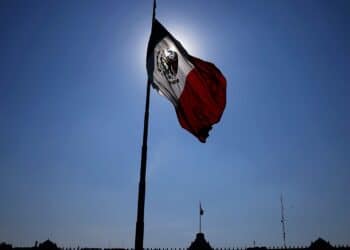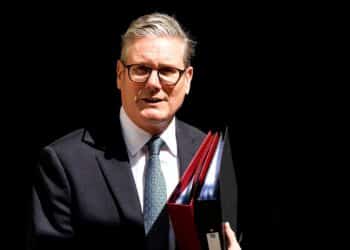A firm believer in the saying that there are no permanent friends and enemies in politics, Mulayam Singh Yadav’s somersaults to preserve the interests of the party, often baffled political analysts
A firm believer in the saying that there are no permanent friends and enemies in politics, Mulayam Singh Yadav’s somersaults to preserve the interests of the party, often baffled political analysts
Samajwadi Party’s founder and patron Mulayam Singh Yadav (1939-2022) passed away in a Gurugram hospital on October 10, 2022, after a prolonged illness. An astute politician, Mr. Yadav blazed a new trail by putting backward castes at the centre of Uttar Pradesh politics and served as the Chief Minister of the most populous State three times (1989-91, 1993-95, and 2003-2007). He is survived by two sons, Akhilesh and Prateek.
A strong votary of secular politics, Mr. Yadav suffered electoral losses after he ordered the firing on the Kar Sevaks at the peak of the Ram Janmabhoomi movement in 1990, but he pitted himself as the saviour of the spirit of the Constitution and returned to rule the State by forging a strong Muslim-Yadav combination that paid rich dividends at the hustings.
Read: Mulayam Singh Yadav’s death reactions | Leaders pay tribute
He also held the Defence Minister’s portfolio during the United Front government in 1996, after he came tantalisingly close to occupying the Prime Minister’s chair when coalition politics was the order of the day and regional parties wanted to be more than just kingmakers.
Under his watch, the Samajwadi Party, surprisingly, returned to power in 2012 but he decided to pass on the baton to his son Akhilesh, leading to a feud in the Yadav family over a progressive makeover of the plebeian party.
A teacher by profession, farmer by lineage, and wrestler by training, Mr. Yadav, hailing from a non-political background, emerged from a modest hamlet in Saifai of Etawah district of Uttar Pradesh that lies on the cusp of Chambal ravines. More than a son of the soil, he was a child of the wilderness, who following on the path of his mentor Chaudhary Charan Singh, decimated the Congress which represented the upper caste hold of Uttar Pradesh politics by moblising the backward castes that form the biggest chunk of voters in the State.
It is not that every move of the 10-time MLA and seven-time MP worked but his tenacity and touch with the grassroots ensured that the Samajwadi Party remained a force to reckon with since its inception and survived the cauldron of Mandal and Kamandal (caste and religion) politics of the State.
Read: The Mulayam clan | The patriarch, the successor and the party parivar
A firm believer in the saying that there are no permanent friends and enemies in politics, Mr. Yadav’s somersaults to preserve the interests of the party, often baffled political analysts. In the theatre of national politics, he acted according to the party’s interests in Uttar Pradesh. In 1999, when Atal Bihari Vajpayee lost the trust vote by a solitary vote, he kept Sonia Gandhi away from the throne by invoking her foreign origin. However, in 2007, when the Left parties withdrew support from the United Progressive Alliance, he stood by Congress to keep Mayawati, his principal opponent in the State, out. The last man in the row could identify with his bucolic persona and it meant that the charges of corruption never really affected him electorally.
Old-timers say the hard-boiled politician survived the jungle of U.P. politics for more than five decades because he herded cattle as a child and had literally traversed the terrain in his youth on his cycle. As a farmer’s son, he could sense the political climate from a distance. A friend of friends for his beneficiaries and a rank opportunist for his critics, his decisions always kept his opponents and friends guessing.
With his triumvirate of Janeshwar Mishra, Beni Prasad Verma and Azam Khan by his side, Mr Yadav invoked his socialist roots all over again and formed the Samajwadi Party in 1992. But his seasonal experiments with partners continued. He tied up with Mayawati in 1994 which ended in an ugly fallout in 1995. It is said that Mr Yadav’s return to power in 2003, which saved him from the political wilderness, was because of the blessings of Mr Vajpayee. He also hobnobbed with Kalyan Singh when the face of Babri Masjid demolition left the BJP.
Mr Yadav made up for his limited oratorial skills with his solid one-to-one contact with the karyakarta. He was one of the last few politicians who didn’t depend on party heavyweights in Lucknow to reach out to the workers in constituencies. Charges of nepotism in the later years notwithstanding, Mr Yadav allowed the local leadership of Muslims, backward and most backward castes to flourish by picking committed youth from student politics. One of his masterstrokes was withdrawing cases against dacoit Phoolan Devi in 1995 and introducing her as a mascot of Nishads by giving her a Lok Sabha ticket.
His tenures as Chief Minister are remembered for improving the delivery mechanism of the government in rural parts of the State. Be it building roads in villages or providing free water for irrigation, Mr Yadav worked for the upliftment of farmers, without hardly any public relations exercise as we know it today.
He was among the first leaders who publicly stood for the promotion of Hindi and launched the Yash Bharti awards to acknowledge the works of eminent personalities of the State who excelled in the field of literature, arts, and industry. His friendship with Hindi poet Gopaldas Neeraj was legendary. So did his ties with Amitabh Bachchan and Subrata Roy.
He struck a fine balance between Amar Singh, his link to big corporates, Azam Khan, his bond with conservative Muslims, and his younger brother Shivpal, his Man Friday in the party organisation. Whenever cornered by the media and opposition, Mr Yadav got out of a sticky situation by creating an impression that in the relationships with his more vocal, muscle-flexing partners, he was being used but the reality was not as one-sided. After seeing the plight of his contemporaries like Lalu Prasad Yadav, he made peace with the ruling dispensation by praising PM Narendra Modi in the Parliament. In the last decade, the central agencies hardly troubled him.
Mr Yadav will also be remembered for the controversies that surrounded him. Not just the Kar Sevaks, the activists of the Uttarkhand movement were also fired at when he was at the helm of the State. Wedded to an atavistic patriarchal outlook, he refused to be politically correct. He never really apologised for the assault allegedly carried out by SP workers on Mayawati in the State guest house in 1996.
The impertinent and sexist comments where he almost condoned the perpetrators of rape and gang rape and his opposition to reservation for women in Parliament continued to haunt him but he refused to change his tone. Mr Yadav knew his vote bank too well but he could also sense the writing on the virtual walls of social media. So, in perhaps his last maneuver, Mr Yadav passed on the reins of the party to his son, who has a progressive outlook on issues that remained the soft spot of his tough father.
















